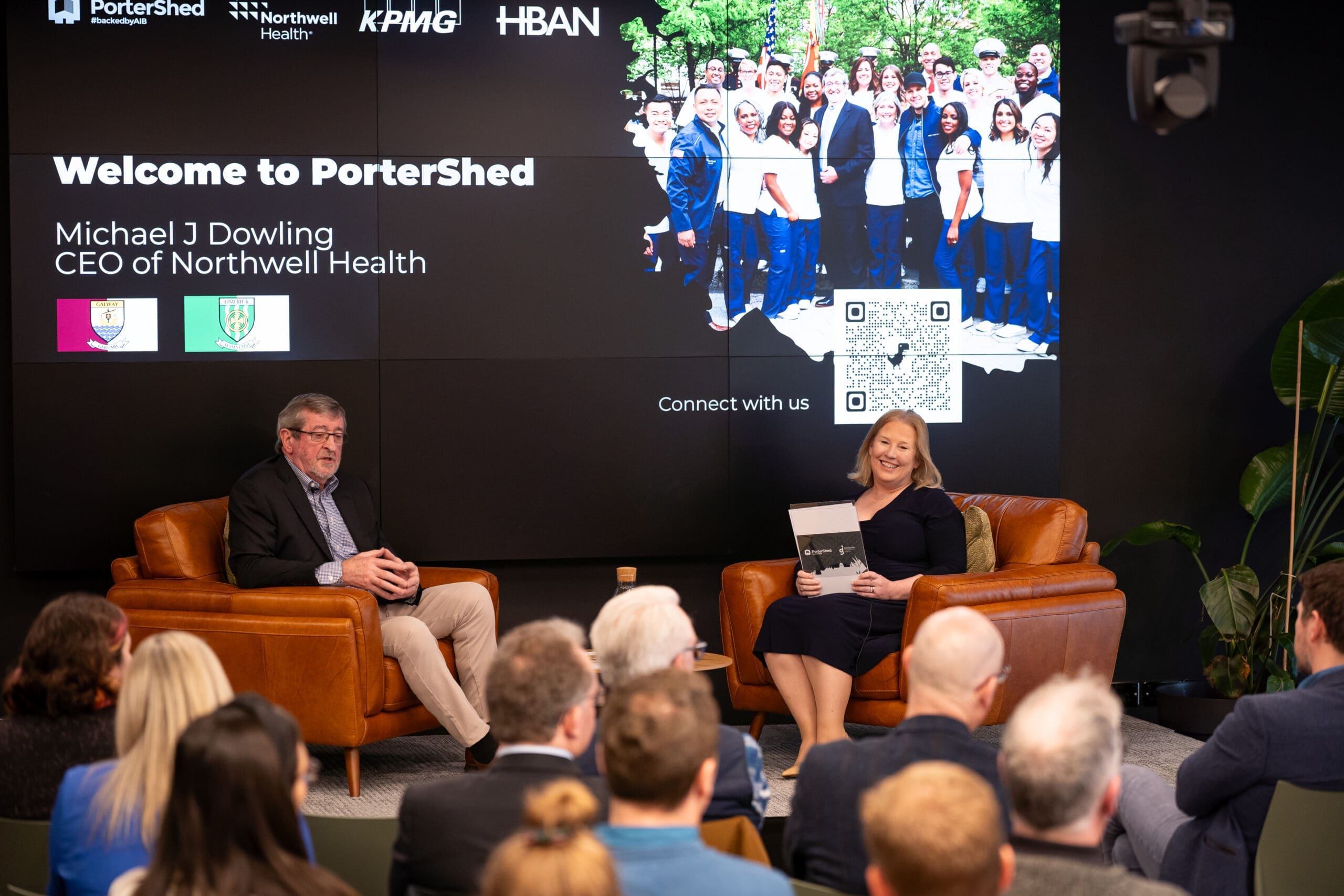A View from the Fridge
2022 Challenge
Okay, we’ve successfully escaped the Twilight Zone between holidays, having suffered through the year-in-review summaries of 2021, a year that no one in their right mind would want to recount. Not to mention the predictions for 2022, though I do enjoy reading Doug Kass’s list of long-shot thoughts (N.B., he’s a trader, grumpy bear by nature, and a funny, principled, smart follow on Twitter.
Catch his predictions at https://realmoney.thestreet.com/investing/doug-kass-my-15-surprises-for-2022-15868922 if you are intrigued).
Now that the local sanitation officers have collected the cardboard and wrapping paper, Covid has cancelled all the New-Year’s- related events we’ve planned, the glass recycling center is overflowing, and I’ve watched Indiana Jones for the umpteenth time, it’s time to face the music.
I come bearing good news. And an opportunity for someone to read the tea leaves and rise to the challenge of accelerating Ireland’s next economic boom.
We all know how lowered taxes and a corporate-friendly government led to investment by multi-nationals created the Celtic tiger and a host of legacy corporations that do everything from manufacturing to data storage, from R&D to paper pushing, right here in Ireland.
Ireland does a great job of marketing its assets – most notably a talented workforce and a high quality of living – to multi-nationals. With last year’s 15% corporate tax normalization, the game will grow more challenging, but one can make the case that Ireland will continue to benefit (a combination of Brexit, the English language, existing big corporate infrastructure, novel connections to EU and USA), if, at a lower rate.
Ireland is well-positioned to look ahead and identify its next arbitrage opportunity, a new market for greater economic growth. An opportunity that is staring us in the face.
Ireland continues to nurture a growing stable of valuable startups. And that reality has begun to be reflected in a handful of recent, large investments in Irish fintech and medtech. These bell-weather investments reflect a realization by those off the island that there’s a high-value crop in Ireland waiting to be harvested, a crop sown by young entrepreneurs, and tended by EI and all the LEOs and NDRCs, all the tech hubs and universities across the country.
That’s the good news. The challenge is how to accelerate it, how to make the most of this enviable situation.
This year.
Ireland is very good at sowing seeds, at creating the potential sources of real, sustained economic value, but there’s something missing. Up until now Ireland hasn’t done a good job of getting the most (economic value) from its yield.
The issue? Not enough fertilizer, meaning the seed capital that recognizes the opportunity and doubles down on the investments made by the government and optimistic investors (family and friends, dedicated angels, early adopters).
As companies grow and risks are washed out of the deal, the country lacks the venture infrastructure to create real growth, real economic value. The investment community is stuck in its pattern of paying pennies on the dollar for the future and then being happy when a company is sold for a fraction of what it’s really worth – not only in transaction value, but in the potential for hundreds, maybe thousands of jobs, new spin-off companies, new growth opportunities across the island.
The Irish startup farm is beholden to a steady-state market that is resistant to change. Not to mention too many burdens, in the form of government policies, red tape, paperwork and legal teeth sucking.
Yes, there are some positive signs on this front (the growing use of SAFE documents and, now and then, a docusign sighting). But it’s still slow going, especially in comparison with other countries (see Latvia, Singapore, and the UK to name a few).
Today, the delta between US and Irish A-round valuations is 5:1. Yes, it’s a reflection of the overheated, overhyped US market. But it also reflects Ireland’s inability to get first-rate, capital-efficient, well-managed companies into a marketplace that recognizes their value. We’re still selling in the village market, not in town where prices are better and quality/scarcity translates to greater value.
Good startups, well-priced goods in the market are increasingly scarce in the US.
The UK does a great job (forgive me for praising something British!). Real tax incentives for investors, real programs to grow specific sectors, real support for off-island scaling.
There’s an opportunity for someone to recognize the opportunity, take up the cudgel, and speak truth to power (ideally a politician with real heft, but even an influential corporate or academic leader) in support of an ambitious platform for next-generation economic transformation, for getting real value (economic growth) from startup harvests.
Ideally a simple, inexpensive plan that moves Ireland from the bottom of EU startup stats to the top.
Some thoughts about what the platform might contain:
- A really attractive, simple tax incentive for seed-to-D-round investment that replaces the EIIS scheme (copy/paste British scheme here, expanded for later rounds);
- Facilitated rules and policies to make it easy and inexpensive to ‘paper’ a company, including writing corporate and investment documents, file and store investment documents, and facilitate tax-efficient investment schemes. Get the startup business out of the eyeshade-and-garter era;
- Creation of a SBIR-like scheme to increase both the number of venture investors and the amount of venture money available (SBIR is a forty-year-old US initiative of the Small Business Administration (see SBA website for details); and
- Create a mirror-version of IDA that works with the US diaspora community (and others interested in novel opportunity) to help startups succeed in funding/scale in the US (market intelligence, facilitated structures for US investment, standard protocols for US employment/healthcare/tax rules and regs). IDA has done a great job, has great reach; one could build on their success relatively quickly.
These would not be expensive investments; in point-of-fact, the SBIR program in the United States has made money for the government (and saved money for taxpayers) every year in its existence. And that’s cash money, not counting the SBIR program’s contributions to the economy (successful companies, employment, tax revenues, spin-outs, etc.) that are harder to compute.
In the new normal, when we’re giving out about the inability of the government to plan for the unplannable, when new walls are being erected and international tensions are rising, someone with a simple plan might be seen with welcome relief – or overwhelmed by the noise from all corners. Either way, encouraging someone to speak up is a worthy challenge.
Thanks for being there the last two years. Best wishes for the New Year!


Bob Rosenberg
Educator (Associate Professor) / Entrepreneur / Leader of angel
communities /Entrepreneur in residence at PorterShed
and BioExcel / Rarosenberg@gmail.com


